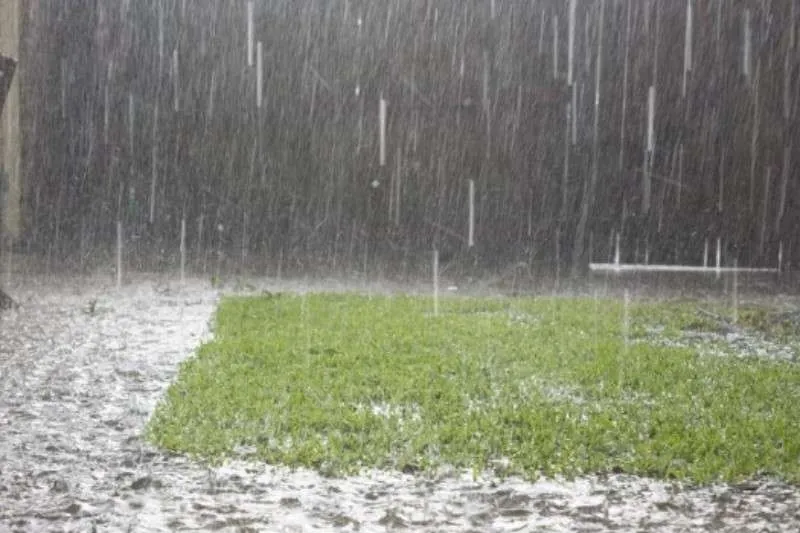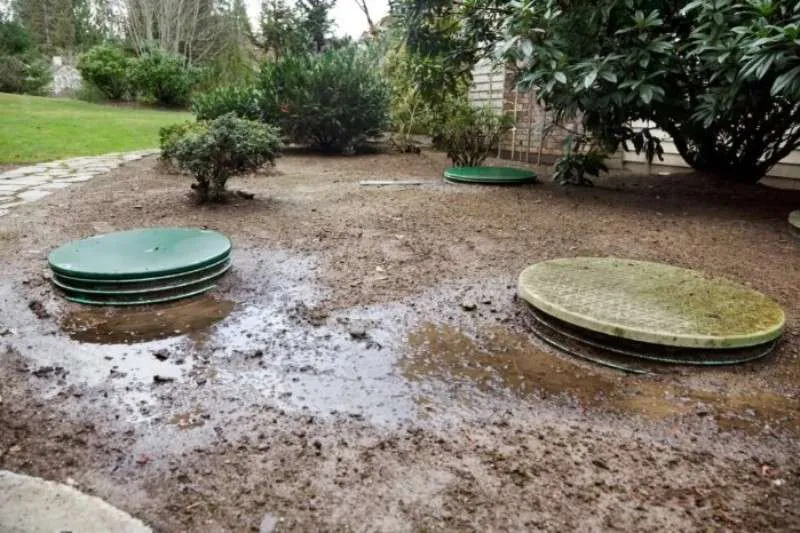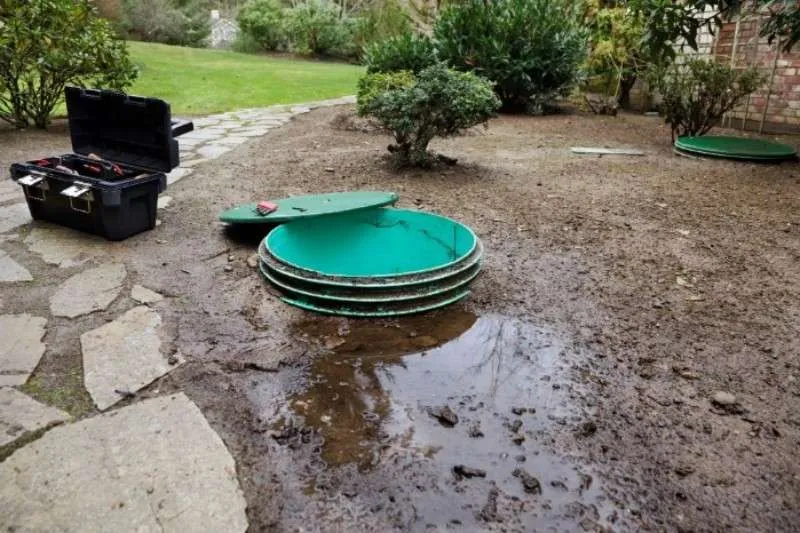Heavy rains can pose serious threats to your septic system, leading to damage that can be costly and time-consuming to repair. Luckily, you can take steps to protect your home from potential harm during heavy rainstorms.
In this blog post, we’ll cover the best tips and tricks for safeguarding your septic system during heavy storms and periods of high precipitation so you don’t end up with a flooded basement and an expensive bill. Read more information about effectively reinforcing your plumbing against strong weather conditions.
Introduction to septic systems and heavy rain
Septic systems are essential to many properties, particularly in rural areas. In many cases, they’re the only form of sanitation available and must be maintained carefully. If not adequately protected, the system is especially vulnerable to damage during heavy rainfall.
Heavy rain can have a significant detrimental impact on a septic system if it is not properly maintained. During these periods of heavy rainfall, the system can become overwhelmed and may no longer be able to function correctly. This can lead to overflowing tanks and a range of other issues. Additionally, excess water in the soil around the drain field area can lead to saturation and flooded drain field of untreated sewage well, which reduces its ability to process wastewater efficiently.
It is, therefore, important to protect your septic system during periods of heavy rain. This includes inspecting the system regularly, checking for any signs of damage or malfunctioning, and taking appropriate preventive measures. Some of the things you can do include ensuring that all pipes and septic problems are clear of debris and blockages, maintaining a healthy bacterial balance in the tank, and monitoring the water level.
By taking these steps to protect your septic system during periods of heavy rain, you can help to minimize the risk of damage and reduce any potential disruption to your sanitation system.
Regular septic system inspections and maintenance
A septic system’s drainfield is a delicate system that can be easily overwhelmed during heavy rain events. To protect your septic system’s drain field from potential damage, it’s important to take preventative measures before a storm hits. Regular septic tank inspections and maintenance can identify potential issues that could lead to failure. Scheduling routine inspections every two to three years, or as your local health department recommends, is a good way to ensure system integrity.
During an inspection, the technician will assess the tank’s condition and verify it meets all safety standards. The technician will also inspect the drain field to ensure no surface saturation could lead to flooding during heavy rains. If any potential issues are found, it’s important to address them right away since the system can be easily damaged during heavy rain events.
Maintenance is also important in protecting your septic system from damage caused by heavy rain events. Regular pumping of the tank and removing all solids help the septic system problems function properly and reduce stress during rainfall. Inspections and maintenance can help identify potential issues before rainfalls so you can address them appropriately.
It’s also important to keep the ground flooding the area near the well pump your septic tank is well-maintained and free of debris or other obstructions that could cause flooding. Additionally, avoid using too much water during heavy rain events since this can cause the system to become overwhelmed.
By following these steps, you can ensure your septic system is properly maintained and reduce the risk of potential damage during heavy rain events. Regular inspections and maintenance are key to protecting your septic system from potential flooding and other problems caused by heavy rainfall. By taking preventive measures, you can be sure your system can handle any rain that comes it’s way this rainy season.
Proper landscaping and drainage around your septic system

Heavy rain can be a major issue regarding your septic system. Without proper maintenance and upkeep, your septic system won’t be able to handle large amounts of water and could suffer from a break or malfunction. To make sure your septic remains safe during heavy rains, there are several steps you can take to protect it.
One of the most important steps is proper landscaping and drainage around your septic system. Ensure that the ground slopes away from your septic tank’s well pump, as this will help direct rainwater away from it. Ensure you have well-draining soil and a suitable cover material such as gravel is used. This will help to prevent water from pooling and seeping into the ground near your septic system, which can cause damage.
Your drain field is also vulnerable to heavy rain, so you should ensure proper grading around it and that all surface drainage is directed away from it. If necessary, install a French drain or another drain system to prevent ground flooding and help divert water from your drain fields to the septic system.
Finally, planting appropriate vegetation around your septic tank and drain field would be best. Avoid trees or other plants with deep root systems that could damage the pipes, and opt instead for shallow-rooted species such as grasses, ground cover, and shrubs. These will help absorb runoff from saturated soil and reduce the water that reaches your septic system during heavy rains.
By following these steps, you can protect your septic system from damage caused by heavy rain. Proper maintenance is essential for a long-lasting, efficient septic system, so don’t hesitate to contact a professional if you have any questions or concerns.
Installing a sump pump and a French drain system
Heavy rain can be a real challenge for septic systems, leading to backups, overflows, and other potential damage. A sump pump and a French drain system protect your septic system during heavy rains. In this article, we’ll explore the benefits of these two systems, how to properly install and maintain them, and how they can help protect your septic system from the damaging effects of heavy rain.
Sump pumps are installed in the lowest point of a septic tank or other areas where water may accumulate, such as groundwater. The pump will then move any water that accumulates away from the septic tank or system. This is especially helpful during heavy rains, as it helps to reduce flooding and prevents backups and overflows.
French drain systems are the drains and toilets installed where water accumulation is likely to occur, such as near a house foundation or around a driveway. The drains use gravel beds and perforated pipes to direct water flow away from the areas, reducing the chance of flooding of household drains and water accumulation near your septic system.
The benefits of sump pumps and French drains for septic system protection
The benefits of sump pumps and French drain systems include the following:
- Reduced risk of flooding and backups in your septic system
- Improved drainage around the foundation or driveway to prevent water damage
- Better overall management of water runoff during heavy rains
To properly install and maintain these systems, you should consult a professional experienced in their construction. Properly installing sump pumps and French drains can help conserve water and protect your septic system from the damaging effects of heavy rain.
Monitoring and reducing water usage during heavy rain
When heavy rain is forecasted, taking proactive steps to protect your septic system from overload is important. Although your septic system is designed to handle wastewater, too much water in your septic backup in a short period can lead to issues such as flooding and sewage backups.
Below are some tips for protecting your septic system during heavy rain:
- Monitor water usage in your home during heavy rain and reduce it as much as possible. This will help prevent an overload of the septic system, which could lead to costly repairs. Avoid activities requiring a lot of water, such as laundry or running the dishwasher. Postpone these tasks until after the heavy rain event.
- Be mindful of water that is going down the drains. Avoid flushing items such as wipes, baby diapers, and other materials that can cause clogs in your septic system.
- Consider installing check valves on all drains to prevent backflow during heavy rains. This will also reduce the risk of sewage backup into your home or yard.
- Inspect your system regularly to ensure everything is functioning properly, and there are no signs of clogging or flooding. If you notice any issues, it’s best to address them right away before they become a larger problem.
Taking these proactive steps will help protect your septic system from any damage during heavy rain. If you have any questions or need assistance protecting your septic system limit water, during significant rainfall, contact a local professional for help.
Protecting your septic system components from flood damage

Heavy rain can cause significant damage to your septic system if it is not properly protected. Fortunately, you can take a few steps to protect your septic system from flooding.
The first step in protecting your septic system from heavy rains is to inspect it for any signs of wear, tear, or damage before the storm. Ensure all components are in good working order, and make any repairs before the rain begins.
Once your system is inspected, protect access lids from flooding by securing them with sandbags or heavy stones. This will help to prevent water from entering the septic tank and damaging its components. Sealing other openings and allowing water to enter the system is also good.
The next step is elevating electrical components and alarms, and heavy equipment such as pumps or float switches. This will protect them and other vehicles from water damage in a flood. You can also purchase flood protection devices for your septic system, which can help safeguard it against heavy rains and flooding.
By taking these steps to protect your septic system before the rain begins, you can help ensure it will remain in a good shape and working order through even the heaviest storms.
FAQs
How can heavy rain impact my septic system?
Heavy rains can overwhelm your septic system and lead to flooding, sewage backups, and other issues. Taking proactive steps before the rain begins is key to avoiding costly repairs.
What are the signs that my septic system is struggling during heavy rain?
If your septic system is struggling during heavy rain, you may notice signs such as sewage backups into the home or yard, slow draining fixtures, and a wet or saturated landscape around the tank area. If you notice a septic backup or any signs, contact a professional for help.
How can proper landscaping help protect my septic system during heavy rain?
Proper landscaping can help protect your septic system during heavy rain by the runoff water directing rainfall away from the tank and drain field. Installing a berm or swale around the area will also help reduce the runoff water and flooding.
What is the role of a sump pump or French drain in protecting my septic system?
A sump pump or French drain can help protect the tank and your septic system from flooding by pumping, collecting, and draining away from the tank and drain field. This is especially helpful during heavy rains when the ground surrounding soil often becomes saturated and runoff occurs.
How can I reduce water usage during heavy rain to protect my septic system?
Itching your water usage as much as possible during heavy rains is important to prevent your septic system from becoming overwhelmed. Limit the amount of laundry and showers you do during rainy season, use low-flow faucets, toilets, and showerheads, and avoid using any plumbing fixtures that are not necessary.
Conclusion
After reading this article, you can avoid flooding your basement or paying expensive bills from a damaged septic system during heavy rain. It’It’sways important to be proactive and monitor the weather forecast to safeguard your own septic tank system from potential damage. Check for any drainage problems or risks of waterlogged soil and take steps to divert water away from your septic tank system. Use a mesh strainer on roof gutters, cover exposed vents and tanks, limit the number of bacteria getting into septic tanks now, and evaluate if you need a more durable septic tank system.


